On Investment in Communities with Eric Donnelly
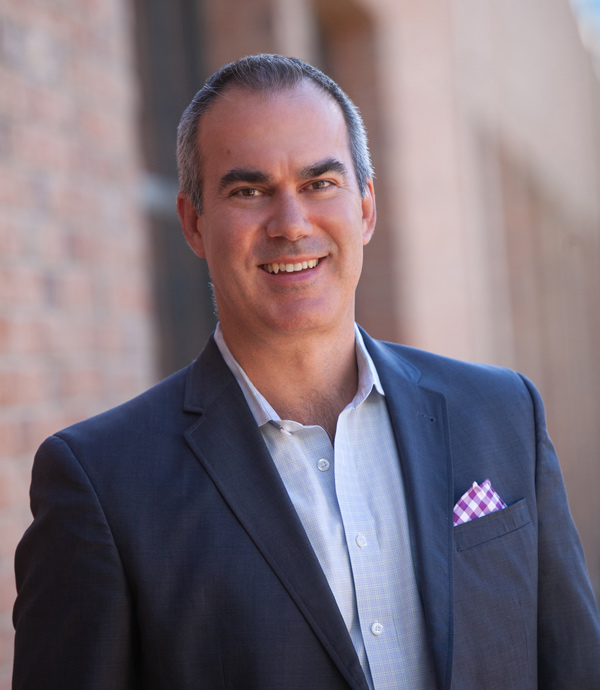
In 2021, Capital Plus Financial committed $169,500 over a four-year span to Amigos de las Américas’ (AMIGOS) Social Impact Accelerator Program: Powered by Capital Plus Financial, a 16-week virtual, bilingual program for high school-aged alumni to take community-based projects from the idea phase through implementation in their home communities.
AMIGOS President & CEO Sara Nathan sat down with Capital Plus Financial board chair, CEO & Director of Crossroads Impact Corp, and AMIGOS Advisory Council member Eric Donnelly to chat about why their institution supports AMIGOS, why representation matters, and how important it is to invest in communities.
Sara Nathan:
Hi Eric, it’s great to get to speak with you today. We’re very grateful for the contribution that your company is making to AMIGOS for this program. To start, we’re interested in hearing why you’re personally motivated to support the Social Impact Accelerator program.
Eric Donnelly:
I love the idea of kids coming back and wanting to implement what they’ve learned abroad or through the AMIGOS program in the communities where they live. I found it to be very inspiring and something that we wanted to be supportive of. We’re always looking for new and innovative ways to continue to impact the communities that we serve. This seemed like a great dovetail into what we do. And obviously, I’ve got a great familial relationship with AMIGOS and it was a great fit.
Sara:
Why do you believe it’s important for young people to engage in service, whether at home or abroad?
Eric:
I think you learn a lot about other people and other people’s circumstances by doing service work and engaging with them. I grew up in a very civic-minded household and it was important to me to understand how other communities operated, how we could be helpful, how we could be of service, understanding that I grew up very differently than other people and was very fortunate, of no circumstances or no doing of my own but that it was my parents. But that helped me have an appreciation for people and has informed my career. I’m trying to be of service to less fortunate people or find areas where we can help lift up communities. I think it’s important to get that perspective as early as possible. And I love that AMIGOS instills that kind of engagement and interaction early on. If we can’t inspire younger people to serve, then we’re not leaving the world a better place. I think that’s incumbent upon all of us to do as we get older.
I love that AMIGOS instills that kind of engagement and interaction early on. If we can’t inspire younger people to serve, then we’re not leaving the world a better place.
Sara:
Wonderful. Building on that, in your career, you have worked with so many different communities and leaders who are building in their communities. Reflecting on all the people you have worked with, what skills do you think are critical for young people to learn in order to lead?
Eric:
Empathy, humility, unselfishness…these are all basic traits. I don’t know that the time that we’re living in today calls for anything different than it may have 20 or 30 years ago, but it does seem to me that absent in our national conversation is empathy for our fellow human beings. The pandemic taught us that some things are bigger than the news of the day and that we all are human beings, we all have our different areas of struggle, and we can be of service to each other. There’s a great ingenuity that exists in our country. We saw that through the pandemic, certainly with AMIGOS. You learned to pivot very quickly and the organization needed to survive, and it also needed to fulfill its mandate to be of service to communities and our younger people. I think just the basic act of getting out of ourselves, which the pandemic kind of forced us to do. To be of service to other people is critical.
Sara:
You mentioned your family connection to AMIGOS. Can you tell us a little bit about that and why our work matters to you?
Eric:
For as long as I can remember, AMIGOS was part of our family. My dad and my mother were very involved with the organization through the board and through fundraising. As we got older, we would work in the office, and we were very good family friends with [then CEO] Margaret Guerriero. AMIGOS was ever-present in our family. My dad is Colombian and my mother is Costa Rican. The fact that AMIGOS was doing so much good work in Costa Rica specifically was very much appreciated and acknowledged in our family. We have such an affinity for the country and the culture and the people, and the work that AMIGOS does there continues to be inspiring. That’s always been a great draw for me to support what you all are doing. Our business serves Texas and specifically Hispanic communities, and the fact that AMIGOS is operating throughout Latin America— I really view it as a bridge.
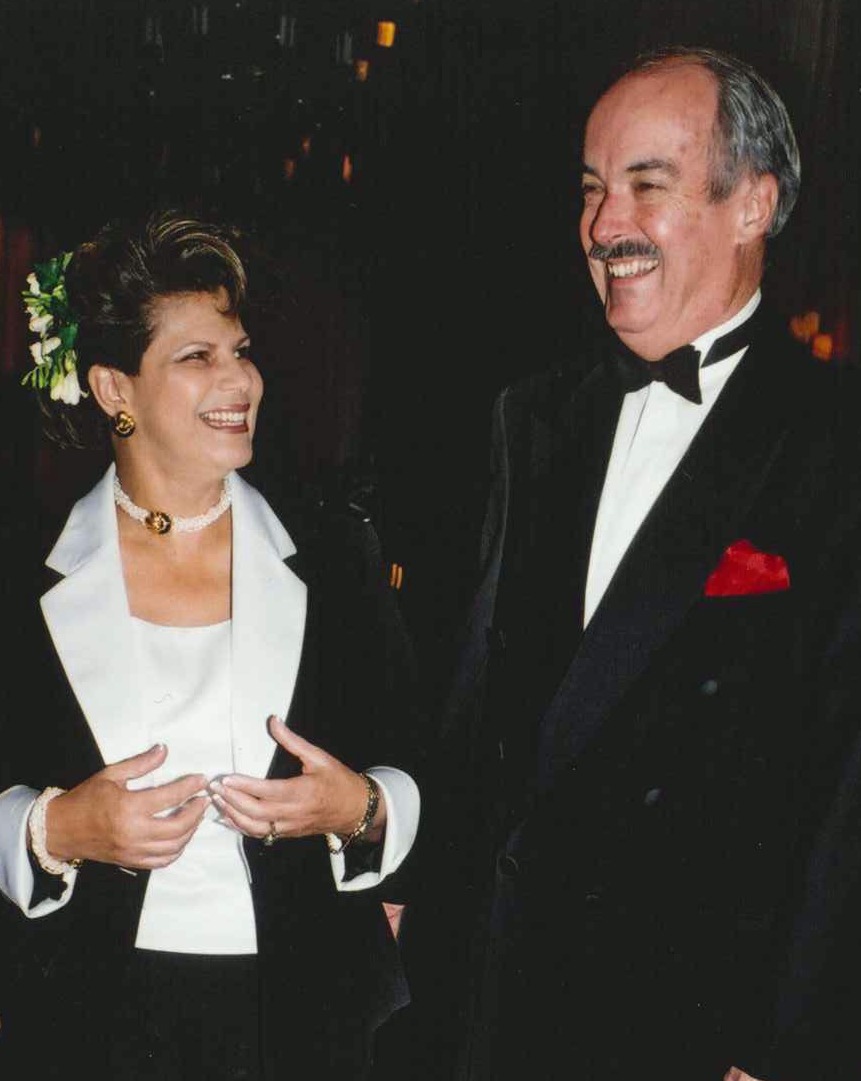
When I was growing up, there were kids that perhaps otherwise wouldn’t know the intricacies of specific countries in Latin America. AMIGOS really opened their eyes to our culture and our language and our ways of being—it was really a beautiful bridge that the organization provided. To be able to support that now is a nice tie-in to the communities that we serve. I’m Hispanic and it’s something we can do to further support these countries. Then, people come back to the U.S. and educate their fellow community members about the wonders of Latin America.
Sara:
In terms of looking at the work that you do, how did you get into this line of work and where do you see yourself going with it?
Eric:
It was really by accident! A friend of mine called me and said that there was a company for sale in Dallas. We were living in California at the time and happily living by the beach. I certainly wasn’t in the business of buying companies. But I got on the phone with this very eccentric entrepreneur who reminded me of my old banking days when I would talk to these very passionate business owners who wanted to scale their business. They were great salespeople or great at business development, but they just couldn’t get their business to the place that they wanted.
He asked me if I would consider helping him scale the business. The company was restoring houses in low to moderate-income parts of Houston, Dallas, and San Antonio and not tearing down houses and building a house that otherwise wouldn’t be affordable to the people living in those communities.
That in itself got me on board. But then the fact that Capital Plus Financial was providing financing to people who otherwise were ostracized from the banking system really hit it home. I understand this: I grew up around people who had an inherent distrust of the banking system. The countries where my family is from don’t really have the same kind of banking system that we have in the U.S. I had a reckoning with my own finance background, and specifically, the banking background that teaches us that if people don’t have credit, we’re supposed to send them out into the world and get a gas card or a clothing store card or some kind of establishment of credit and then invite them back a few months later when they paid their bills on time.
I took a step back and I said, this company’s been around for 20 years. They must be doing something right. The people they serve are generally in their mid to late thirties, who’ve never had debt and live within their means. They don’t have a credit score, but that doesn’t mean that they’re not credit-worthy. That was the real awakening for me. It’s simply the act of extending people credit who have never had credit. It seems very simplistic, but it’s kind of a big deal in the banking business. Capital Plus Financial will be 30 years old next year. We have given a lot of people the opportunity to own a home and it’s really rewarding and lovely work.
Sara:
That’s so amazing. As you take a step back and look at what Capital Plus Financial is doing to support communities, what do you see as the future of your industry?
Eric:
Capital Plus Financial was born out of the desire to have money flow to underserved communities. For a long time, there were a lot of small, mainly nonprofit companies that were doing great work in these communities. I think what’s happened of late is that there’s been recognition that community development financial institutions (CDFIs) are the best avenue to make an impact in these communities.
Many small businesses and independent contractors did not get PPP funding in the first round, and CDFIs played a big role in the second round. CDFIs deployed a lot of resources to small businesses and independent contractors. The future of our industry is to do the work that we’ve been doing, but do it at scale.
Many banks are supporting CDFIs, recognizing that they want to do more in these underserved communities, but that they may not have the core competencies and expertise to do it. I think those kinds of partnerships and doing it at scale are the future of the CDFI industry, and that’s exciting.
Sara:
It’s incredible to see how the pandemic has accelerated your work and expanded opportunities. With all of the challenges that many individuals, families, organizations, and industries have faced, it’s amazing to see the expansion of opportunity.
Eric:
Right. I think people are paying more attention to impact. There are specific funds that want to see demonstrable metrics and impact. This is certainly a change from 20 years ago. For example, I had a conversation with analysts the other day, and less than 10% was spent on financial impact. Instead, it was all about community impact metrics: what are you doing? How are you measuring it? How can we see real community impact? How many people’s lives were affected by the kind of financing and capital that we’re putting into communities?
I was in awe of this line of questioning and appreciative that it has now become very mainstream to talk about impact, which I think goes back to the previous question of where the industry is going.
They want to see the impact right now. For us, it’s easy, because we’ve been doing it for 30 years and we’ve got another company that’s now part of our extended family that does climate finance and impact real estate and small business. We now have our moment to say: you can do all of this. It can be good financially. It’s incredible for the people that are in these communities who are being impacted by it. It’s a neat time to be in this part of the finance world.
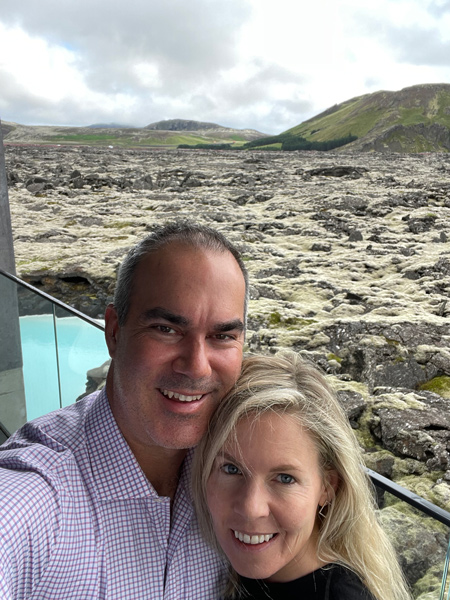 Sara:
Sara:
And you take on other roles outside of your day job! In terms of getting involved in different non-profit initiatives, I know you’re also a member of the Latino Corporate Directors Association. I’d love to hear your thoughts as to why you believe it’s important to increase diverse representation on boards and staff teams.
Eric:
Well, I learned this from my father. I used to ask him if he got more enjoyment out of his day job than he did from all his volunteer work because it just seemed like he was constantly going to board meetings of some kind. And it was certainly the latter. He felt very strongly that we should all be involved as much as we can in being of service. I was fortunate to grow up in Houston, which is a very international city.
Our work on the Latino Corporate Directors Association (LCDA) is really to push companies to be more inclusive and get different perspectives on their board. Running a board myself, I know that it’s very easy to be myopic about what you think the board needs to look like. It can seem important to put like-minded people on the board, but I think real progress happens when you have diverse perspectives. It’s critical that boards reflect the communities that they serve and they should also reflect their employee base. That kind of mentality is what we are pushing for at LCDA—to have corporate boards, public boards specifically, be thoughtful about how their board is comprised, and what that means to their customer base and their shareholders.
It can seem important to put like-minded people on the board, but I think real progress happens when you have diverse perspectives. It’s critical that boards reflect the communities that they serve and they should also reflect their employee base.
We are obviously focused on Latinos being on public boards. The last report I saw said that we need three times as many Latinos on public boards and nine times as many Latinas. That’s becoming my new mission: not just Latinos being on boards, men and women, but specifically Latinas. As a father of two little girls, part of it for us as Latin men is to change the narrative of what women’s roles are.
There are a lot of incredibly capable women who shouldn’t have to choose between family and their corporate success. We should be fostering that kind of equality, both in the workplace and at the board level. I think we’ve got a lot of work to do. There are so many incredibly talented Latinas who deserve a voice and a place on corporate boards. Maybe I’ll spend the next 20 years of my career helping change that deficiency.
Sara:
Your point is so incredibly powerful. What are some of the actions that companies can take to increase representation?
Eric:
We went on a quick family vacation in Mexico and the woman that was showing us to our room stopped just outside of where her desk is, where there was this beautiful view of the ocean. She looked at me and said, “can you imagine if this was your office?” And I said, “oh yeah, it would be lovely.” We got back to the room and my wife said, “that’s the kind of thing that you don’t think about, but that has to change—she looked at you, she didn’t look at me.”
This woman wasn’t trying to offend my wife. She was trying to do her norm, which I’m sure she does five times a day while she’s taking people out. When you step back from it, it’s my ignorance to that, my blissful ignorance to it. Am I trying to suppress my wife and my two little girls? Of course not. Did it even occur to me that my wife would have a different experience with this interaction? No, it didn’t, but it should, because she’s right. I should be role modeling that for our little girls. That’s a very innocuous little example to get to the answer to your question. Those of us that are leaders of companies need to be open to hearing that.
The point is that a small, innocuous example is part of why there isn’t equality in the workplace. I think most people would probably say, of course, we want equal representation of women and minorities in companies. But it’s another thing to really understand what has to be done to create that equality. I can do my part: the positions of prominence in our company are either led by women or minorities.
It’s intentional. It has to be strategic too. I have to want to see a vision where my replacement is one or the other. Hopefully both, either a woman or somebody from an underrepresented minority group. You have to want it. I have to want the company to get there. It has to be part of the conversation that we have on boards when a position comes open. The strategy has to be reflective of the community that we’re serving or else we’re not doing our part in making this better. And that’s really important to me.
Sara:
I want to ask you a few questions about your vision and hope for your own legacy. Do you have a personal vision statement for yourself?
Eric:
I don’t have a personal vision statement. Legacy-wise, I just know that I am in a big hurry to get out of the way and let the next generation of capable leaders take over. I don’t want to hang around too long and limit the growth of the next generation of leaders. I get so much enjoyment out of helping and watching people flourish and letting them have the spotlight and letting them run with creative ideas. I want to be additive. It’s fun to grow things and it’s really fun to make an impact, but it’s also really rewarding to have people take it to the next level.
Knowing when that time is right to step aside and foster the growth of other people has been surprisingly more rewarding than I thought it would have been. Maybe that’s just part of getting a little bit older. I never thought it’d be so much fun to hire my replacement and watch it and watch him grow, but it has been really great.
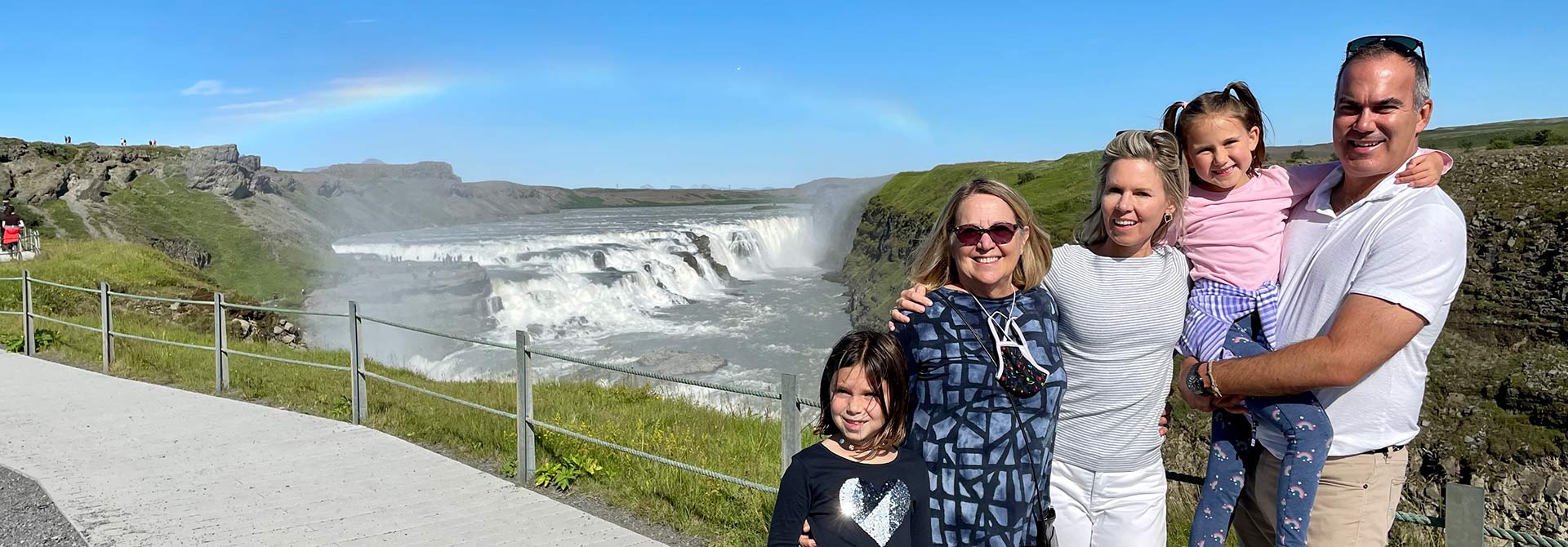 Sara:
Sara:
Do you have a role model who inspires you?
Eric:
I get inspired all the time in random ways. Artists and musicians are very inspiring to me. I got up the other morning and I was watching an old clip of David Letterman. He had on this musician named Warren Zevon that he really loved. He was dying and he went on Letterman for the whole week. What must it be like to know you’re making your last album?
They were great friends and Dave was really struggling. Warren Zevon looked at him and said, “Dave, it’s gonna be okay.” I go to that sometimes for inspiration because here’s a guy who knows he is going to die. He’s making music, he’s doing what he loves. He’s appreciating every moment. He’s watching his friend struggle with how to talk to him on national television. And just looks at him and says, “it’s gonna be okay.” I can draw inspiration from that.
My mother was a huge inspiration to me too. At the end of her life, I asked what it was like to know the end of your life is coming so soon, at age 56 or 57.
And she said, “I was a poor girl from Costa Rica and your father showed me the world and I had a great life. I had two beautiful boys and you know, what am I going to complain about?” I draw inspiration from that. It’s these sorts of everyday human stories that inspire me more than one particular leader. I draw inspiration from everyday people who are just living life and recognizing challenges.
Sara:
Wonderful. I have one last question for you—what gives you hope for our future at this moment?
Eric:
Even though we can all read headlines and read that we’re so far apart, it does seem to me like we are searching for middle ground and adult humanistic conversations. Extraordinary things like a pandemic help us realize how intertwined we are and how we are human beings first. We can disagree without being disagreeable. There are a lot of people having those kinds of conversations. I’m hopeful that continues. I think the ingenuity that came out of the crisis is inspiring and it gives me great hope.
There’s a lot to be grateful for and hopeful for. I think it’s incumbent upon all of us to be good role models for our kids and the younger generations and in our own conversations to be advocates for those who have less, and those who need better representation. I think we can do that in ways that help build consensus and don’t divide us.
I think it’s incumbent upon all of us to be good role models for our kids and the younger generations and in our own conversations to be advocates for those who have less, and those who need better representation.
I’m super hopeful about the great work that you’re doing, the fortunate work that we get to do. The fact that there’s depth to what we’re talking about. There’s depth in conversations about loans, which didn’t use to be that way. Now we’re talking about what a loan does for somebody, what that can do for their families and communities, what more we can be doing, what more beyond just providing a loan can we be doing for families and borrowers and small businesses? There’s a lot of hope that can be ascertained from those kinds of conversations.
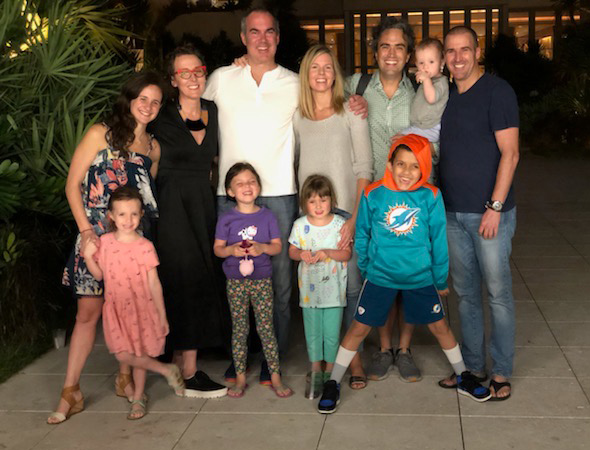 Sara:
Sara:
Amazing. Well, thank you so much, Eric. It’s so wonderful to talk to you and hear how you think about your life, career, and passions. I appreciate you taking the time to speak with me and for your support of the AMIGOS mission and what we do to activate young people and build bridges between them
Eric:
It’s an easy thing to support. It’s an incredible mission. You’re doing an amazing job of steering this ship through just completely unprecedented times. It’s an honor for us to support AMIGOS.

